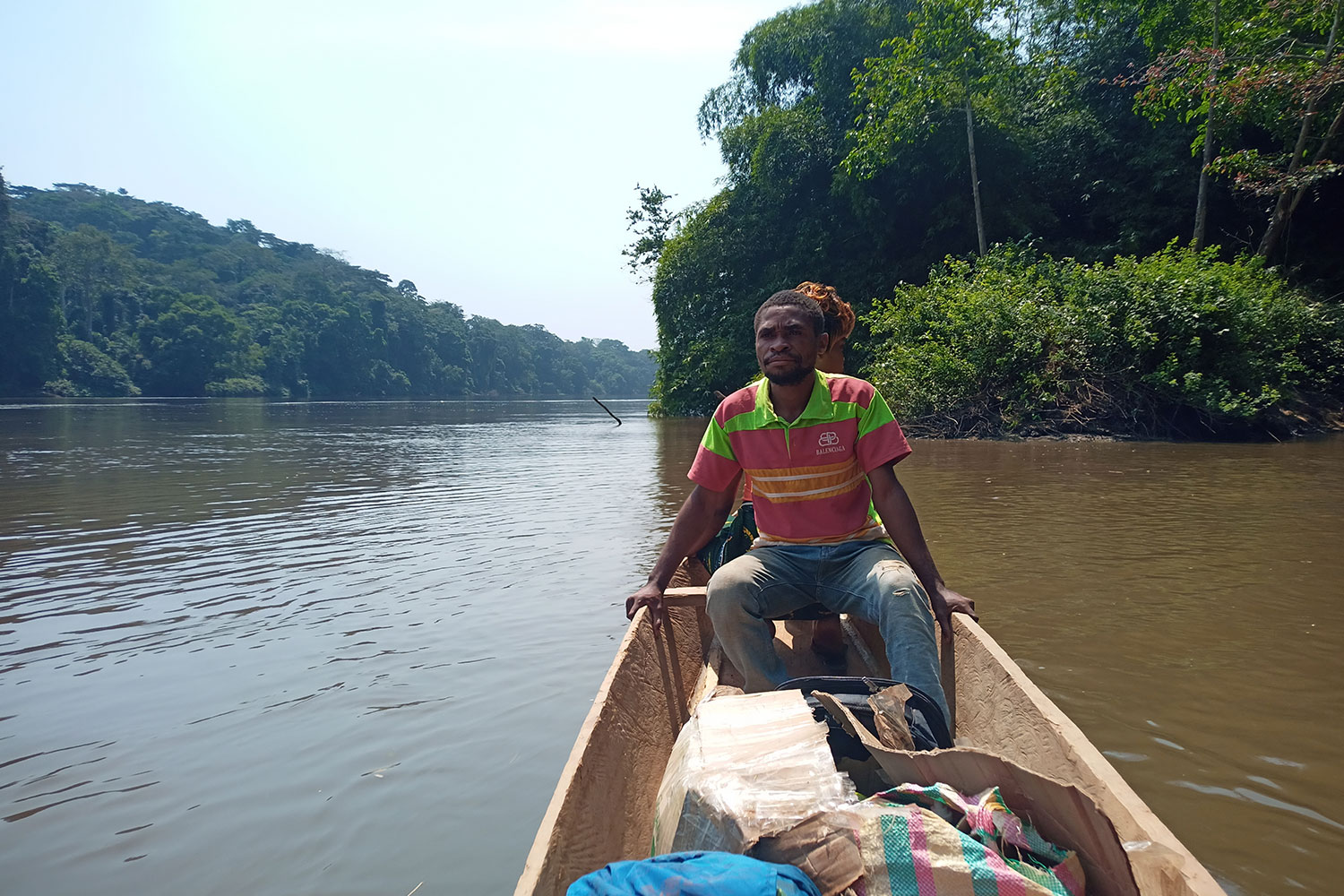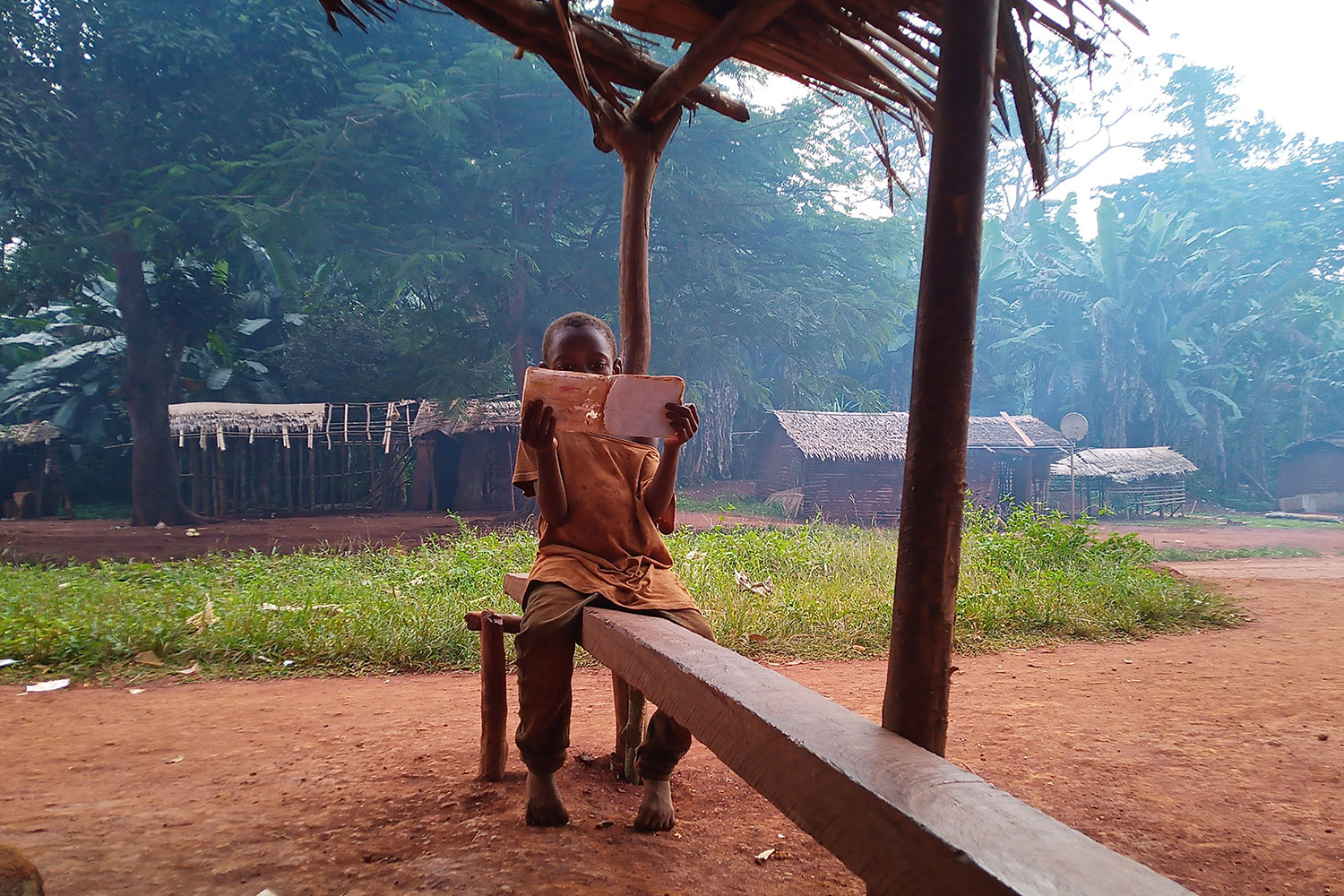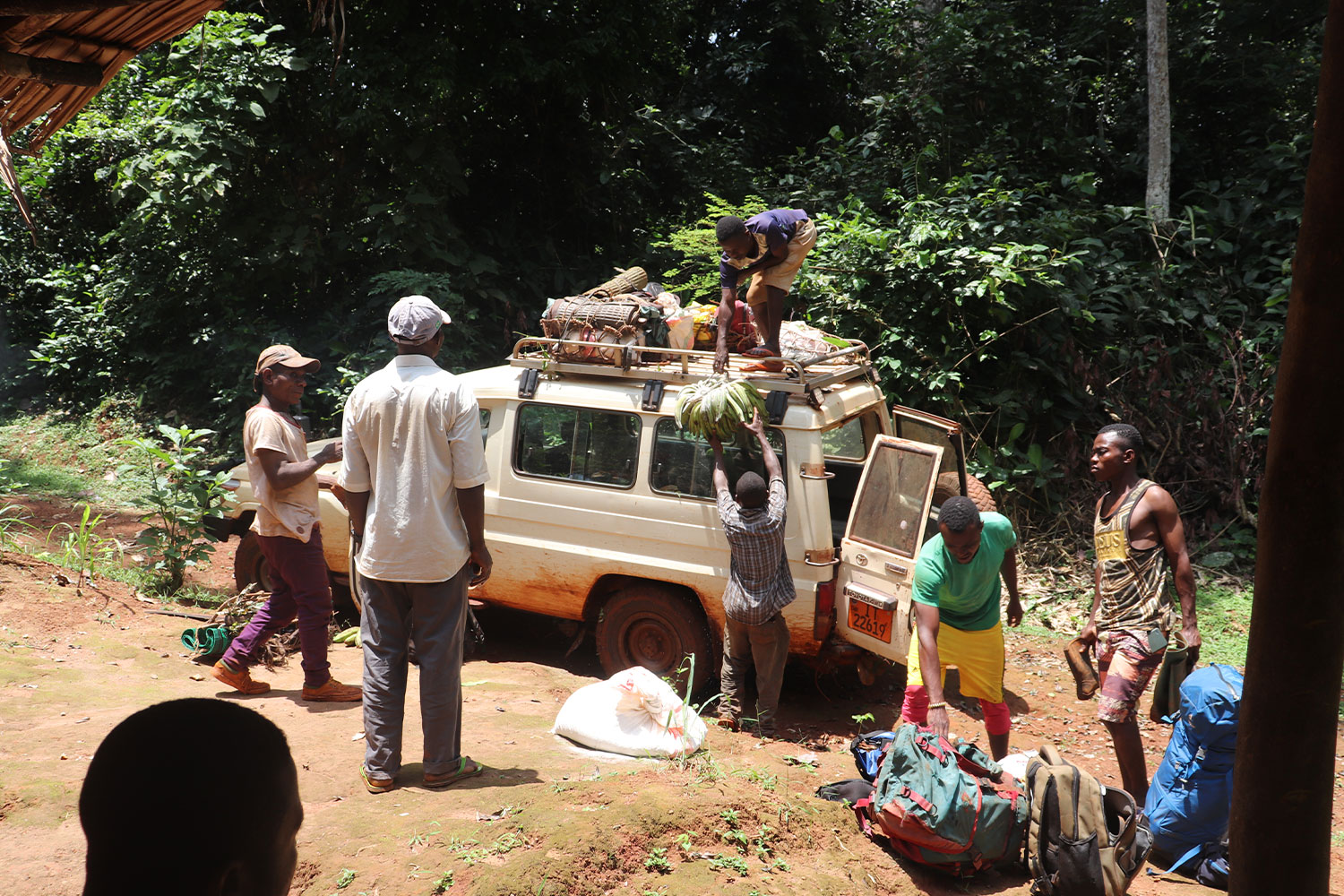Situation of theIndigenous Communities
Democratic Republic of Congo: Salonga National Park
About 3% of the population of the Democratic Republic of the Congo identifies as indigenous, mainly belonging to the Baka, Mbuti, Batwa and Twa groups. Although all Congolese citizens are equal before the law and racism and ethnic discrimination are prohibited, the human rights of indigenous peoples are often violated and ignored. The abuses they suffer are unlikely to be sanctioned by the justice system due to structural discrimination and the belief of the rest of society that they are second-class citizens.
Indigenous people in the DRC have no representation or voice in political decision-making, and their access to basic social services such as health care and education is severely limited, remaining below the national average.
The Congolese legislator of the various laws that intervene in the environmental sector includes provisions that require the supervisory authority to work in collaboration with local communities and indigenous peoples. The latter are considered to be very important actors in the management of natural resources and the conservation of biodiversity.



Cameroon: Lobéké National Park and Periphery
There are two main indigenous groups in Cameroon; indigenous forest peoples such as the Baka, the Bagyeli, the Bakola and the Bedzang, who maintain a traditional hunter-gatherer lifestyle in the forests of the Southeast and Central regions of Cameroon, and the Mbororo. The Mbororo are indigenous pastoralists who live predominantly in the Savannah areas of the east, northwest and Adamawa regions of Cameroon, they are nomadic herders that span many areas of the Congo River Basin. The socio-economic situation of indigenous peoples in Cameroon is significantly disproportionate to that of other surrounding communities. Indigenous forest peoples live drastically below the poverty line, with little access to basic social services such as healthcare, education and communication.
There is a significant issue of land rights for indigenous peoples in Cameroon. Cameroonian legislation does not recognise the rights of indigenous peoples to have customary collective property on their ancestral lands. Furthermore, in Cameroon the establishment of land tenure and the fundamental condition of obtaining an individual land title being material development, makes the lives of indigenous peoples particularly difficult.
These challenges are only becoming more and more exacerbated, as the Cameroonian government have instigated policies that aim to connect the indigenous peoples with neighbouring communities.
These outside communities have subsequently subjugated the indigenous people and co-opted their property, in turn affecting both their land access and access to vital resources.
Cameroon’s own resource needs have led to increased exploitation of indigenous lands. Companies and state entities have been allocated concessions such as mining, conservation, agriculture and industry, which in turn excludes and forbids land access rights to indigenous communities, who are continuously and repeatedly being dispossessed and restricted from areas they survive off, and have lived in for thousands of years .
There appears to be no formal, legal recognition of indigenous status in Cameroon and the rights of indigenous peoples are not yet recognised or established. The indigenous communities in Cameroon therefore face multiple human rights violations, including access to food, land rights, lack of political representation, systemic discrimination and marginalisation, and disproportionate rates of illiteracy. At present, there are no legal frameworks that guarantee the full recognition of indigenous peoples in Cameroon.
Central African Republic: Dzanga-Sangha Protected Areas
In 2013, an armed rebellion broke out in the CAR involving the government, rebels from the Séléka coalition and anti-balaka militias, power was ultimately seized from the state. Triggered by severe Séléka abuses through the execution of a ‘spoils of war’ policy, local communities turned to self-defence militias, known as the anti-balaka, marking the beginning of an unprecedented cycle of violence characterized by ethnic cleansing, reprisal killings and a manifold of serious human rights violations. It fomented a de facto partition between ex- Séléka and anti-balaka territory, with a conflict-prone fault line down the country’s centre. As the transitional authorities fought to restore stability in the west, rising divisions among the ex-Séléka leadership over political strategy and the Brazzaville ceasefire culminated in the splintering of the movement from September 2014.
Much of the geographical areas inhabited by indigenous Mbororo communities served as a battleground for the armed groups, who kidnapped and ransomed the Mbororo people. Such violence and pillaging have since destroyed the livelihoods of Mbororo communities, and the perpetuating, chronic consequences of it are still suffered greatly.
The Mbororo are now overwhelmingly displaced groups, known as Internally Displaced Persons (IDPs). Having lost virtually all their livelihoods and livestock, they live in unmitigated vulnerability in displacement sites or in new villages which they hope may protect them from armed groups, ransoms and looting of livestock.
The Aka, who traditionally live in forest regions, have faced a similar story. Forced to leave the forest and join other communities, they are particularly vulnerable since becoming sedentarised, as many are struggling with illiteracy and lack of education, particularly when it comes to money and its management. Leading to heavy exploitation in terms of working in manual labour for very little, as well as unfair pay – subjecting them to debt, tension, and conflict between groups. As a result, they are also socially and economically excluded by the surrounding population and are often deprived of their rights, facing extreme discrimination.